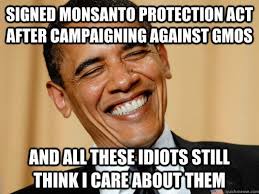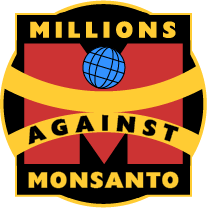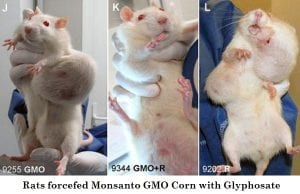Roundup Poison Everywhere
Roundup is used around the world on everything from corporate farm crops to home gardens. Roundup is Monsanto’s flagship product, the cornerstone of its whole operation. Science funded by Monsanto and other Ag-industry corporations has found Roundup to be relatively safe. Independent science, by contrast, including the World Health Organization, has found glyphosate to be likely carcinogenic. Monsanto consequently faces Roundup cancer lawsuits across the country.
Roundup Lymphoma Link
Independent research reviews have found that Roundup exposure increases the risk of non-Hodgkin’s Lymphoma (NHL), chronic lymphocytic leukemia, and other maladies.
Monsanto’s Damning Emails with Regulators
A federal case against Monsanto for Roundup has been filed in San Francisco. Court documents include Monsanto’s internal emails, as well as ethically troubling emails between Monsanto officials and federal regulators. The records suggest Monsanto had ghostwritten research later attributed to academics. A senior EPA official had worked to quash a review of Roundup’s main ingredient. A study on glyphosate was supposed to have been conducted by the U.S. Department of Health and Human Services. That study was never done. The documents also show internal E.P.A. disagreement over glyphosate safety assessments.
Judge Unseals Secret Monsanto Files
The files were unsealed by Judge Vince Chabria. He is presiding over a lawsuit brought by people who say they developed non-Hodgkin’s lymphoma from glyphosate exposure. The litigation stems from a determination made in 2015 that glyphosate was a probable carcinogen. The International Agency for Research on Cancer, a branch of the World Health Organization, cited research linking glyphosate to non-Hodgkin’s lymphoma.
Monsanto Insider with EPA
Court records show Monsanto was alerted to the damning determination months earlier by a deputy division director at the E.P.A., Jess Rowland. That EPA/Monsanto insider gave the biotech bully a head start to prepare a public relations assault on the finding before its publication. Monsanto executives’ internal emails said Mr. Rowland had promised to fight Department of Health and Human Services’ efforts to conduct independent review. He appears to have been successful.
EPA Official Works For Monsanto to Defend Glyphosate
Dan Jenkins, a Monsanto executive, wrote in a 2015 email that Mr. Rowland had told him, “If I can kill this [his agency’s review], I should get a medal.” Mr. Rowland should have gotten his Monsanto medal, because the review never happened. Mr. Jenkins noted in another email to a colleague that Mr. Rowland was planning to retire. The Monsanto man said Mr. Rowland “could be useful as we move forward with ongoing glyphosate defense.”
Glyphosate Unsafe on Any Plate
Glyphosate has never been proven safe by any objective review of the science. Several agencies, including the European Food Safety Agency and the E.P.A., have disagreed with the international cancer agency that plays down concerns of a cancer risk. Monsanto has always aggressively defended glyphosate through million-dollar PR campaigns, advertising money that also buys friendly copy, and political contributions. Monsanto has also leaned on its minions in the EPA (like Jess Rowland), the judiciary (like former Monsanto lawyer and Supreme Court Judge Clarence Thomas), in the White House (like former first lady and former lawyer for Monsanto, Hilary Clinton), and the House of Congress (2016 total to Democrats: $89,500; to Republicans: $267,000).
 But the court records also reveal a level of debate within the E.P.A. The agency’s Office of Research and Development raised concerns about the robustness of an assessment carried out by the agency’s Office of Pesticide Programs. There, Jess Rowland was then a senior official. He had recommended in December 2015 that EPA take steps to “strengthen” its “human health assessment”on glyphosate.
But the court records also reveal a level of debate within the E.P.A. The agency’s Office of Research and Development raised concerns about the robustness of an assessment carried out by the agency’s Office of Pesticide Programs. There, Jess Rowland was then a senior official. He had recommended in December 2015 that EPA take steps to “strengthen” its “human health assessment”on glyphosate.
Monsanto: “Glyphosate is not a carcinogen”
Monsanto said in a statement: “Glyphosate is not a carcinogen.” The company added: “The allegation that glyphosate can cause cancer in humans is inconsistent with decades of comprehensive safety reviews by the leading regulatory authorities around the world. The plaintiffs have submitted isolated documents that are taken out of context.”
The New York Times reported that the E.P.A. had no immediate comment to the judge’s March 13 ruling. The paper said it could not immediately reach Mr. Rowland for comment.
Monsanto through Both Sides of Its Corporate Mouth Monsanto also refuted suggestions that the disclosures the judge forced it to make highlighted concerns that the academic research it underwrites is compromised. The problem, of course, is that Monsanto always cites such vested-interest research to back up its Roundup pesticide-safety claims.
Monsanto also refuted suggestions that the disclosures the judge forced it to make highlighted concerns that the academic research it underwrites is compromised. The problem, of course, is that Monsanto always cites such vested-interest research to back up its Roundup pesticide-safety claims.
Monsanto Ghostwrites its own Research, Hides Authorship
In one email unsealed last month, Monsanto executive William Heydens told other Monsanto employees that they could ghostwrite research on glyphosate by hiring academics to put their names on papers that were actually written by Monsanto.
Mr. Heydens wrote: “We would be keeping the cost down by us doing the writing and they would just edit & sign their names so to speak.” He said the company had done so previously, citing a previous case.
When questioned about the exchange, Monsanto said in another statement that its “scientists did not ghostwrite the paper” referred to or previous work, adding that a paper that eventually appeared “underwent the journal’s rigorous peer review process before it was published.”
Roundup Cancer Link – Rat Study
 We have also seen an instance where Monsanto hired its own friendly editor and then had him pull peer reviewed research paper pulled from publication, because it showed glyphosate as a probable carcinogen. That was the Giles Seralini rat study, in which rats developed hideous tumors that gave the lie to Monsanto’s proclamation of glyphosate safety.
We have also seen an instance where Monsanto hired its own friendly editor and then had him pull peer reviewed research paper pulled from publication, because it showed glyphosate as a probable carcinogen. That was the Giles Seralini rat study, in which rats developed hideous tumors that gave the lie to Monsanto’s proclamation of glyphosate safety.Researcher denies Ghostwritten Work
David Kirkland, one of the scientists mentioned in the email, said in an interview, “I would not publish a document that had been written by someone else.” He added, “We had no interaction with Monsanto at all during the process of reviewing the data and writing the papers.”
Integrity of Academic Research Questioned
The disclosures are the latest to raise concerns about the integrity of academic research financed by agrochemical companies. A review by The New York Times in 2016 showed how the industry can manipulate academic research or misstate findings. Declarations of interest included in a Monsanto-financed paper on glyphosate that appeared in the journal Critical Reviews in Toxicology said panel members were recruited by a consulting firm. Email traffic made public shows Monsanto officials discussed and debated scientists who should be considered, and shaped the project.
Monsanto, Roundup Face New Safety Doubts
Most of Monsanto’s glyphosate research is highly questionable, given the many conflicts of interest that often come to light only after a lawsuit is filed,” said attorney David Matthews, whose law firm is handling Monsanto and Roundup cancer lawsuits.
Roundup Weedkiller Everywhere In the last 20 years, Monsanto has genetically re-engineered corn, soybeans and cotton. Some 220 million pounds of glyphosate were used in 2015 in the United States.
In the last 20 years, Monsanto has genetically re-engineered corn, soybeans and cotton. Some 220 million pounds of glyphosate were used in 2015 in the United States.
RELATED
- Monsanto Lawsuit
- Roundup Cancer Lawsuit
- Monsanto sued for False Advertising
- Monsanto hid Roundup Cancer Evidence
- NY Times: Roundup faces New Doubts
- Roundup causes Liver Disease

by Matthews & Associates




